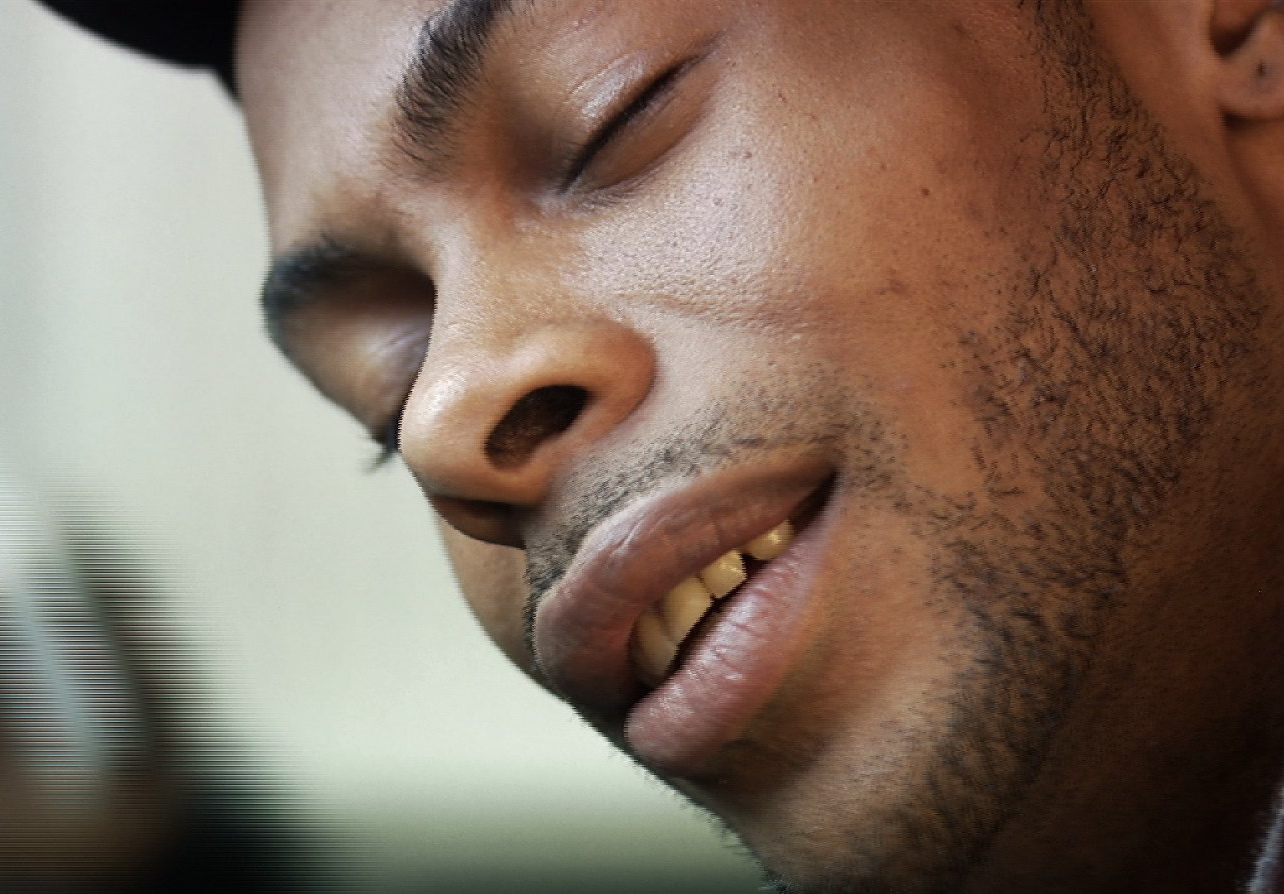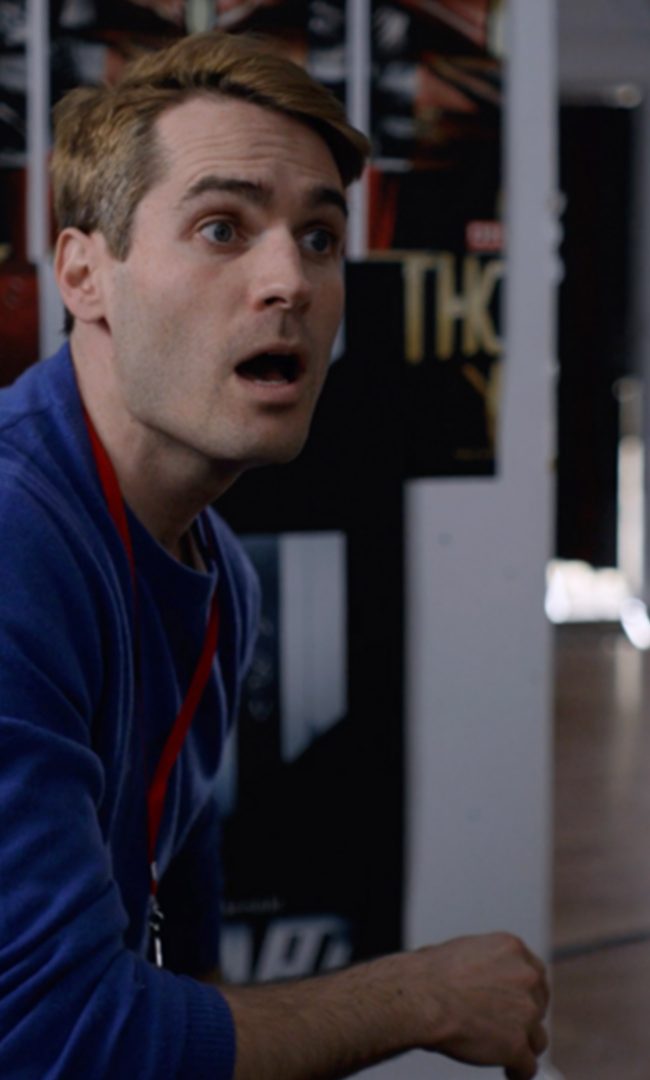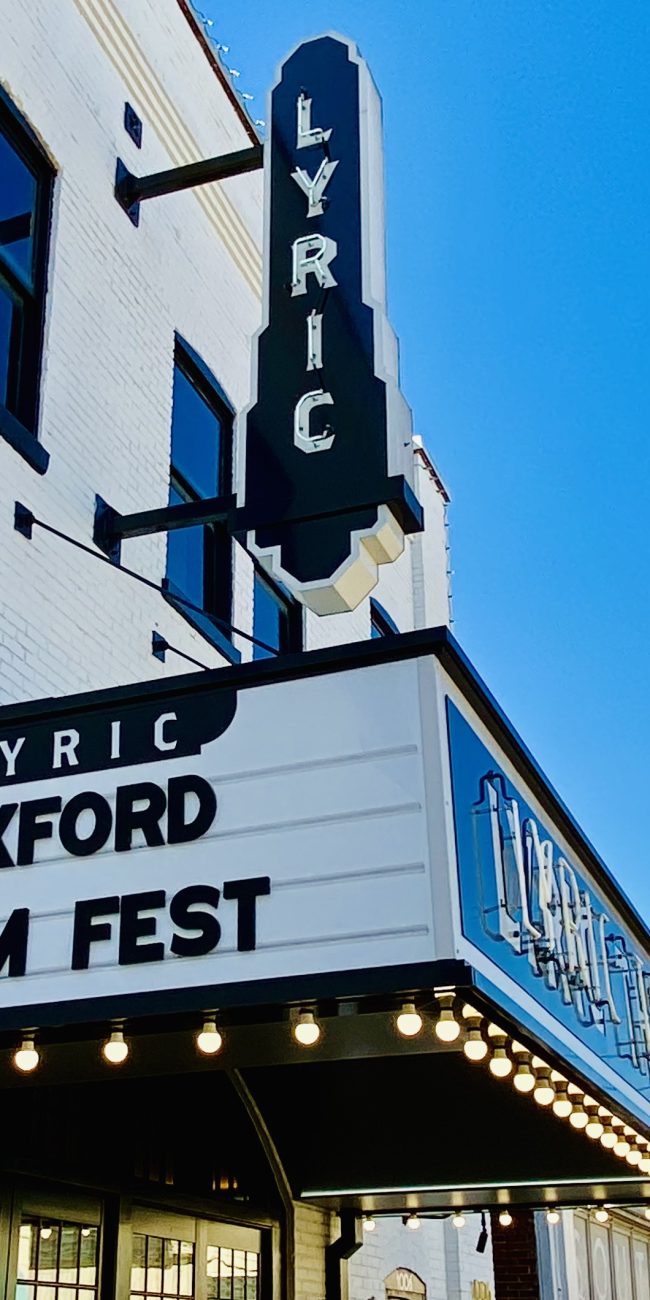(Hug will screen at the Palm Springs International Short Film Festival on August 26th. Go here for future updates.)
Maybe it’s just that my rhythm ain’t right. But if you give me a hug, then your frequency gets my frequency back in sync.—Drew (Jas Anderson) in Hug
One of the most interesting things you can learn at film school—and in my case, it’s something that didn’t become clear to me until I was nearly finished with my studies—is that craft, in itself, counts for little. It’s not easy to perceive this while you and your classmates are in the thick of it, struggling to learn the fundamentals, stumbling toward competency, finally achieving some modest level of polish and professionalism; you can lose sight of the fact that part of what drove you to be there in the first place is that most movies, most competently made, polished, professional movies, are crap. In film school, the workshopping, class-presentation, note-giving process (useful, even essential as it can be to the developing artist) by necessity fixates only on what can actually be taught. Story structure can be tightened, awkward dialogue planed smooth, narrative irrelevancies pared away. These are important lessons to learn. But all too often, the end result is a “well crafted” point-A-to-point-B bore—or, as a former professor described my MFA program’s typical film, “Mother and daughter reconcile in the final scene by sharing a cigarette on the porch.” What’s missing is inspiration, obsession, mystery, surprise, the quirk and spark of a strongly individual sensibility. What’s missing is art.
Khary Jones’ 16-minute film Hug is certainly well crafted, a solidly carpentered piece of conventional realist storytelling. And it resolves itself ever so neatly: the film is called Hug, it’s about a man in need of a hug, and it reaches its dramatic climax when he gets a hug. But there’s nothing the slightest bit predictable or paint-by-numbers about it. Hug is an original. After seeing it, I was grinning like a fool, and I wanted to show it to all my movie-loving friends right away. Writer/director Jones, an MFA student at Columbia (full disclosure: my alma mater as well), has delivered a gem of a film.
Drew (Jas Anderson) is an aspiring hip hop producer with severe mental problems. His friend and manager Asa (Usman Sharif) has set up the most important meeting of their careers, not knowing that Drew has stopped taking his meds. As the meeting approaches, Drew begins to lose control. Ranting and twitching, he kicks Asa out of the car and speeds off, taking his demo CD with him. By the time Asa catches up with him several blocks away, Drew is in the middle of a fierce argument on the street with his sister Hollis (Phyllis Johnson). Asa steps in to try to calm Drew down so they can make their meeting, and the film turns into a delicate three-way dance of need, frustration, and recrimination. The relationships between Asa and Drew, and Drew and Hollis, are vividly and poignantly sketched. In Usman Sharif’s exasperated scowls and sighs, and in a single tear running down Phyllis Johnson’s cheek, Jones gets across whole descriptive paragraphs about the burden of caring deeply for someone who’s not all there. Asa and Hollis have been down this road before with Drew, and no doubt they’ll be back here again soon. It’s such a rare thing in a short film: you feel the characters have lives that began before the story starts, and will continue after it ends. And Jas Anderson’s lovely, committed performance as Drew makes the movie quiver and hum to his oddball rhythm. Swaying blissfully to a beat no one else can hear, snarling in a sudden fit of rage, alternately begging people for hugs and giving them out himself like a rich man heedlessly tossing away pocket change, Drew is an inspired creation.
The relationships between Asa and Drew, and Drew and Hollis, are vividly and poignantly sketched. In Usman Sharif’s exasperated scowls and sighs, and in a single tear running down Phyllis Johnson’s cheek, Jones gets across whole descriptive paragraphs about the burden of caring deeply for someone who’s not all there. Asa and Hollis have been down this road before with Drew, and no doubt they’ll be back here again soon. It’s such a rare thing in a short film: you feel the characters have lives that began before the story starts, and will continue after it ends. And Jas Anderson’s lovely, committed performance as Drew makes the movie quiver and hum to his oddball rhythm. Swaying blissfully to a beat no one else can hear, snarling in a sudden fit of rage, alternately begging people for hugs and giving them out himself like a rich man heedlessly tossing away pocket change, Drew is an inspired creation.
Jones, along with his DP Aaron Kovalchik, who does smoothly unobtrusive handheld camerawork throughout, has the good sense to put the characters before the story—the plot, such as it is, comes across as merely an excuse to follow these three around. And we, in turn, are happy to follow the film wherever it leads. Hug has just begun its festival run. Try to catch it if you get the opportunity.
— Nelson Kim











